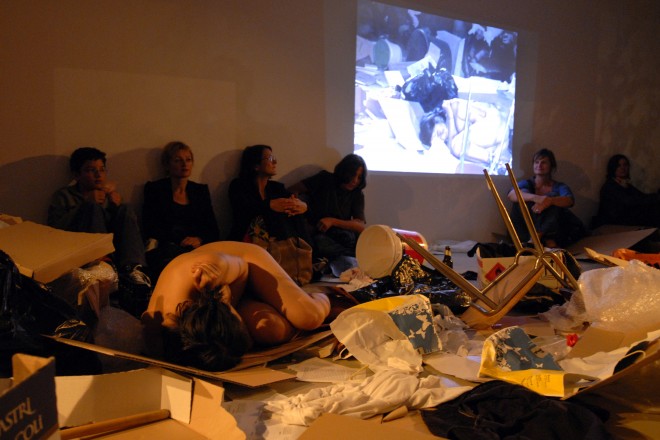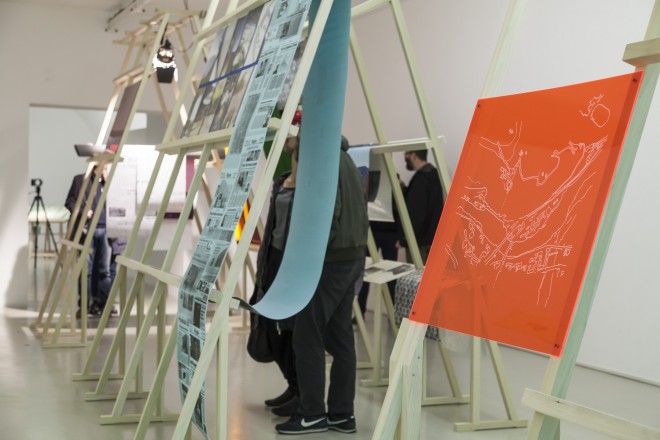Difference as potential
Also this year Lungomare proposes the series of talks, workshops and performances: Difference as potential.
With this program Lungomare focuses on the idea of the city as a social space. We think of the city and its shared places as a tool that can make visible the transformations that currently take place in our society, as a place of contact and meeting between different cultures and people, a place where difference becomes a protagonist. The events represent an opportunity for exchange and discussion with artists, architects and designers to question the urban spaces that are transformed and radicalized, making aspects such as the concept of “other”, “identity”, “belonging” and “hospitality” weak.
07.10.2019
7 pm
Thin Attachments: Writing Berlin in Scenes of Daily Loves
with Omar Kasmani and Anna Fedele
in collaboration con EVAA, anthropological Association South Tyrol
The first appointment with Omar Kasmani, Pakistani cultural anthropologist but homed in Berlin, will present his research work by talking with Anna Fedele, anthropologist and sociologist from Bolzano.
THIN ATTACHMENTS: READING BERLIN
This writing project brings personal memoir to bear on an affectivegeography of Berlin. It is a constellation of non-linear fragments, written in the third-person masculine form. Across Scenes of Daily Loves, the city’s queers and Sufis, saints and strangers, lovers and research-partners cross paths at work, in cafes, at mosques, online, and in bed. Queer, migrant, and the religious are figures that appear and reappear in this geography through daily routines and habits, private rituals of be/longing and scenes of public intimacy. The narration of the intimate and the private becomes a way to think of an urban full of ghosts, dreams, memories, imaginations and anxieties – a city so porous that its boundaries can never be sharply drawn.
Omar Kasmani – born and raised in Karachi, Pakistan – is a cultural anthropologist and ex-architect homed in Berlin. He is currently a post-doctoral fellow at Affective Societies, a collaborative research centre at Freie Universität, Berlin. His work pursues ideas of post-migrant be/longing, queer futurities and public intimacy – a research practice that is best read across the study of religion, queer worldings and affect theory. He has co-edited the book Muslim Matter (Revolver Publishing 2016) and is currently working on his first monograph on saintly intimacy and unstraight futures set in a pilgrimage town in Pakistan.
Anna Fedele – is an anthropologist and sociologist from Bolzano whose research focuses on the intersections of gender, religion and corporeality. She is currently a Senior Researcher at the Lisbon University Institute in Portugal. Her monograph “Looking for Mary Magdalene” (Oxford University Press, 2013) has received the Award for Excellence of the American Academy of Religion. Anna is a member of the board of EVAA and more recently her research has focused on pilgrimages in the Alps. She is the co-editor of the Routledge book series “Gendering the Study of Religion in the Social Sciences”.
22.10.2019
7 pm
with Lauren Alexander
The second appointment with Foundland Collective, formed in 2009 by South African Lauren Alexander and Syrian Ghalia Elsrakbi.
Since 2014 is based between Amsterdam and Cairo.
The duo collaboration explores under represented political and historical narratives by working with archives via art, design, writing, educational formats, video making and storytelling. Throughout their development, the duo has critically reflected upon what it means to produce politically engaged work from the position of non-Western artists working between Europe and the Middle East.
Foundland was awarded the Smithsonian Artist Research Fellowship for research in the largest Arab American archive in 2015/2016 and was shortlisted for the Dutch Prix de Rome prize in 2015 as well as the Dutch Design Awards in 2016. In 2017 their short video, “The New World, Episode One” premiered at the Centre Pompidou, Paris and in 2018 was screened at the Rotterdam International Film Festival. The duo have lectured and exhibited widely in Europe, the United States and the Middle East including at ISPC, New York, Ars Electronica, Linz, Impakt Festival and BAK, Utrecht, London Art Fair, Beursschouwburg, Brussels, Fikra Biennial, Sharjah and Tashweesh Feminist Festival, Cairo and Brussels. Several of Foundland’s video works are preserved and distributed by the Dutch media art archive LIMA, Amsterdam.
Memory Archives for the Future
Foundland Collective aims to develop analytical and unconventional research methods to understand, interpret and map complex events around us, particularly related to situations of conflict and migration. Through a reflection on several projects by Foundland Collective dealing with archival material, we will discuss the relevance of documenting and interpreting personal collections.
26.11.2019
7 pm
Nasrin Mohiti Asli (Orizzontale)
in conversation with Campomarzio
in Italian language
The third appointment of the series of talks Difference as potential presents Orizzontale, an architects’ collective based in Rome whose work crosses the fields of architecture, urbanism, public art, and DIY practice.
Since 2010 Orizzontale has been developing projects of common relational spaces, giving form to both dismissed and unseen images of the city. These projects have led to experimenting new kinds of collaborative interactions between city dwellers and urban commons as well as offering the possibility to test the boundaries of the architectural creation process.
Currently Orizzontale is composed by Jacopo Ammendola, Juan Lopez Cano, Giuseppe Grant, Margherita Manfra, Nasrin Mohiti Asli, Roberto Pantaleoni, Stefano Ragazzo
RE-HABIT AND RE-CONSTRUCT THE COMMON SPACE
The public space is the dimension in which we live every day as inhabitants, and where Orizzontale decided to act as architects. The progressive estrangement of communities from the collective spaces of the city and the rapid evolution of the needs of contemporary society, led the collective to start a design research that had as its central theme the public space.
Orizzontale’s aim is to investigate the causes of this “desertification” and to respond to new social needs by experimenting with new ways of intervention in public space. Public actions, ephemeral architecture, shared construction workshops are some of the tools they use to act in the reactivation of common spaces.
Through the actions and processes of reactivation of collective places, we re-live spaces, both directly, with the “open building site” and indirectly, through their installations. The objective of these “urban scenic machines” is to create a collective imagination, stimulate emotions, reflections, habits and behaviours, promoting interaction and involving the inhabitants in the redefinition of the use and configuration of the space.
With their projects Orizzontale tries to give shape to an imaginative, inclusive and celebratory common space.
Campomarzio is an architectural collective practice which merges practical and theoretical expertise within the fields of architecture, urbanism, research, and visual communication, to develop projects and strategies for public and private clients.
What´s on
EXHIBITION :: Binta Diaw :: Collective Practices – A Living Experience of Feeling ListenedAbout Lungomare
Lungomare, a cultural association founded in Bolzano in 2003, was created from the desire and necessity to open a space in which to share differences, experiences, opinions and desires, a space in which to make the link between cultural production and the political and social dimension. Lungomare undertakes projects that investigate and test possible relationships between design, architecture, urban planning, art and theory, the results of which are presented in different formats: public discussions, conferences, publications, exhibitions and interventions in public spaces. All these formats are characterised by the intention to interact with cultural and socio-political processes relating to the region in which Lungomare is located.
Currently Lungomare’s activities focus on long-term residency projects, a format whereby Lungomare invites guests to engage and interact within the context of South Tyrol. Lungomare’s activities are based on three principles: specific attention to the context in which the association’s projects are undertaken, the transdisciplinary approach that distinguishes these projects, and reflection on the role of Lungomare as a cultural institution in connection with the region in which it operates.
Territory
Lungomare is located at the edge of Bolzano, the capital of South Tyrol, and relates to the context in which it operates, attempting to highlight the dynamics of change. Large urbanized areas alternate with broad areas of intensive cultivation and yet others of picturesque landscape, all of which penetrate the centre of the city. The city is surrounded by mountains and this is one of the reasons why the tourism industry has become a driving force in this locality. The demographic structure of the city has been characterized for a long time by the coexistence of two populations, those speaking German and those speaking Italian. However, the social and demographic composition of Alto Adige Südtirol is changing. Migrants, including those from non-European countries are making their way to the area to settle, whilst others, including political refugees, are flowing through the region.



